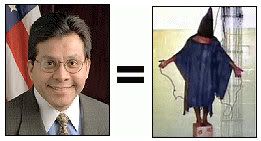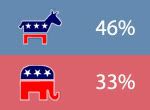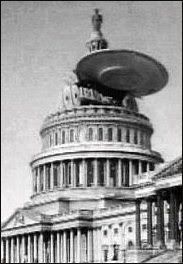Q: What do you think will be the long-term effect of our current international trade imbalance?
A: The long-term effects of the current international trade imbalance are not going to be very good because firstly I don't foresee a correction of that trade imbalance. There are a number of factors for this. Firstly, countries like China and India are emerging very competitively in the manufacturing sector. Secondly, these same countries and similar countries are also emerging as competitors in the services sector, particularly because some of these countries have a tremendous storehouse of intellectual capitol.
Further, if you look at the movement and development of technology, the development of technology is largely based on the location of manufacture. if your production facility is not going to be located in your own country, you cannot expect further technological innovations to take place in your own country.
Q: What do you think of the American trade deficit with China in particular? With China emerging as the only challenger to America as a world power, what can the history of our relations with China teach us about our future relations as trading partners? A: As far as China is concerned, there is recognition of the fact that a large part of the surplus that the Chinese achieve in the balance of trade is because of artificially set exchange rate. Their exchange rate is not determined by the free market, otherwise China would never be as competitive as it is were the exchange rate to reach its real value, and this has sort of been accepted. The point is every time we put pressure on China, and they do make a corresponding revision of the exchange rate, it is only too late and too little, so we are always suffering a disadvantage at their hands because they have a controlled exchange rate.
The other point of course is a political point. From one perspective, China has always been the USA's major military antagonist. After the First World War, we had the Korean War, where it was the Chinese and the soviets who were backing up the north Korean regime. Subsequently in Viet Nam, again it was Chinese guerilla warfare. At the same time we had the Chinese over in Tibet, today they are fomenting trouble in Nepal, so the communist outward push, or the Chinese outward push has really taken place right since the Second World War. So, at some level there has to be a recognition that there is a conflict of interest between the USA and China.
Now what we are trying to do is cover up that conflict by buying the Chinese over into the capitalist system. We are trying to make them part of the capitalist system, make them flush with funds, they are happy with their earnings, hoping that repression will come to an end in China. This might or might not work, as far as my personal views are concerned. Possible the United States of America has always had the option to partner with world democracies rather that communist china. And now the situation becomes more complicated with the Chinese acquiring a certain amount of negotiating power, being major lenders tot he united states, covering up their deficits.
Q: Why is there a current shift in recording history in terms of economics?A: Historically, when we look at wars that have taken place, they are about taking over territory; bring area under control, and of course getting revenues from them. This process was very simple, historically. Now what has happened is that there is a complexity in the field of economics with the manner in which capitol flows take place between countries, the manner in which exchange rates change, the relative positions of countries, there is a complexity to the way labor movements are taking place across countries, and the fact that work can also move across borders - either electronically or by physical movement of labor. So there is a lot of complexity in what was earlier very simple. Fortunately or unfortunately, this complexity is best understood by economists. the domination and the growth of nations is largely dependent on hw their economies do, because aggression by itself has sort of taken a back seat. Aggression is normally in the form of economic growth and economic ascendancy. So, it's quite natural that if history is to be written in the future it will be written by people who understand these aspects of world developments.
Q: Are you concerned about the recent trends in corporate control of our national policy?A: Well, there is absolutely no doubt that a certain amount of growth is taking place. A certain amount of growth is also taking place because American countries are expanding abroad. Money earned in other countries does come back to the USA. On the other hand, lets understand what happens to the investment. If American companies invest in china, its the Chinese who are getting the jobs, not the Americans. Even if there is a repatriation of dividends and income, which leads to an overall increase in American income, you've got to understand, where does this income go? What is the form of the income? The form of the income is dividends, dividends go to shareholders, so who are the shareholders? as long as the average shareholder belong to the higher income brackets, this form of international growth is benefiting only those who are already rich.
There is a conflict of interest over here, because as far as the corporation is concerned, the corporation never sees national boundaries of any sort. The corporation is interested in improving share value, capitol value for its shareholders - and in growing itself. These gains do not necessarily percolate down to what we call the American middle class.
In a lot of cases we have companies which have a succession of years where they don't pay high taxes, and very often this is because companies are buying loss companies in other countries. There is set off of profits and tax saving thereby.
Q: What can you tell me about India as a nuclear power? President Bush recently made
Agreements with India to trade nuclear technology. How will this affect India's neighbors? A: Bush went to India and made an agreement about the sharing of technology. In fact, Bush in his speech commended India for its record of non-proliferation. India has never claimed to not have nuclear technology. They have always claimed that they have nuclear technology.
Q: But doesn't that (agreements between the USA and India to trade nuclear technology) change the dynamic between India and Pakistan?A: As far as the dynamic between India and Pakistan is concerned, India has China on one border, and China has been aggressive. We have Pakistan on the other border, and Pakistan has started three wars, that is on record. So obviously India regards nuclear power as a deterrent, and that's the standpoint that they take.
The standpoint that India takes is that they will not export nuclear technology to any country, which is very unlike what Pakistan has done - either covertly or overtly, or by the malpractice of some citizen of Pakistan. The North Korean technology is from Pakistan, partly. North Korea received nuclear detonation technology from Pakistan, North Korea gave Pakistan the missile technology. So it is a really interesting nexus over there. Again, the Pakistan development of nuclear technology is also referred to as the Islamic bomb. The development of nuclear technology in Pakistan is viewed by a large part of the Islamic nations as an Islamic show of force or center of power. Now, that is something to be thought about very carefully, because there is a religious basis and connotation to nuclear power in Pakistan.
[...]
India has a nuclear threat (China, Pakistan), India has a stable democracy, there has never been a problem in that democracy, there has never been a military ruler in power, and India has never attacked any country. [...] India has always been in a defensive position.
Q: Despite record deficits, America keeps cutting taxes to wealthy. What effect does this have on the economy in the long term?A: Well, what is there to say? They just represent the interests of a certain group which is in power. Obviously they are not going to work.
Q: They call it the trickle down effect, Voodoo Economics, etc....A: Yes, we are all waiting for a trickle down. The point at which we are is very late and at this point what needs to be done is something at the grassroots level. Whom do you have to wait for to change healthcare laws, which are (unintelligible) against the poorer people? Who is going to assist those people who are not insured? [...] I am not talking in terms of Democrats or Republicans, I am talking about issues. Here is an issue that needs to be tackled - healthcare.
Q: It is said that America is moving away from a manufacturing economy to a service economy. What does that mean exactly?A: The service economy has a lot of disadvantages to it. The service economy creates a polarization of two types of jobs. You have the knowledge-based jobs in the services economy, such as doctors and financial analysts. What is going to happen is that a lot of these functions are going to shift abroad. For example, major financial companies in the USA now have most the statistical analysis and brainwork done in countries like India and china. So what's left? What's left in the USA is a process of marketing, very often telemarketing, and you have the services industry paying a very low average wage to people within the United States of America.
If you look at the service industry, one of the major wings of the service industry is the food industry. And you know what has happened to the food industry, the restaurant industry, you've got a form of standardization which has led to that concept of the "Macwage" or MacJob." And that job is really that $7 an hour job that we are talking about. That typifies the service industry. If you look at the retail industry, that has a very low average wage. If you look at the largest employer in the USA, it is Wal-Mart. The average Wal-Mart worker is not earning a lot of money. So we are talking about a decline in wages because of the service economy.
Q: With job growth as compared to population growth at negative 7 million, why are the numbers for unemployment so low? A: Honestly speaking, I am not very familiar with the exact data, but there are certain trends which are very obvious to me. One basic trend, and this has sort of been brought out in the last few years, is that Americans are working longer hours. When I look at that, and try to understand it, i see that as arising from a particular situation. A lot of Americans have lost their middle-income jobs. A lot of these middle income earners lost middle management jobs dues to what was known as re-engineering, downsizing, slow job growth, and ended up with jobs that were paying them much less. When they were working at jobs that were paying them much less, what's really happening?
Firstly, some people regard this as a form of disguised unemployment. People are not employed at their level of capability. This is a form of disguised unemployment. The second aspect of this is that people who have entered into jobs which are paying less than jobs that paid them formerly are forced to take up second jobs, so that they somehow try to reach back the same total income. This phenomena sort of explains how Americans and why Americans are working longer hours.



 A: The long-term effects of the current international trade imbalance are not going to be very good because firstly I don't foresee a correction of that trade imbalance. There are a number of factors for this. Firstly, countries like China and India are emerging very competitively in the manufacturing sector. Secondly, these same countries and similar countries are also emerging as competitors in the services sector, particularly because some of these countries have a tremendous storehouse of intellectual capitol.
A: The long-term effects of the current international trade imbalance are not going to be very good because firstly I don't foresee a correction of that trade imbalance. There are a number of factors for this. Firstly, countries like China and India are emerging very competitively in the manufacturing sector. Secondly, these same countries and similar countries are also emerging as competitors in the services sector, particularly because some of these countries have a tremendous storehouse of intellectual capitol. 



















